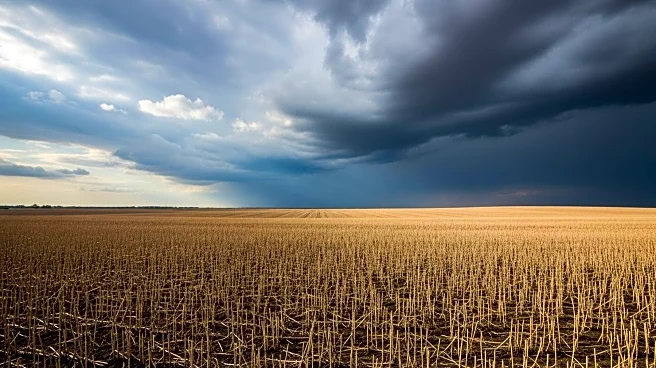What is the story about?
What's Happening?
Russia has declared a federal emergency in the southern Rostov region's agriculture sector due to severe crop losses caused by adverse weather conditions. The decision follows a regional emergency declared in June due to drought, allowing farmers to seek compensation for their losses. Rostov Governor Yuri Slyusar announced that the federal emergency would enable new support measures for farmers, including increased limits on preferential loans and the extension of nearly 300 existing loans for farms unable to repay them. The region has lost or damaged around 1 million hectares of crops due to drought and frosts, leading to Rostov losing its status as Russia's top wheat-producing region to neighboring Stavropol.
Why It's Important?
The declaration of a federal emergency in Rostov highlights the significant impact of climate-related challenges on agriculture, a critical sector for Russia's economy. The loss of crops in one of Russia's major agricultural regions could affect national food supply and export capabilities, potentially leading to increased food prices and economic strain on farmers. The situation underscores the need for adaptive strategies in agriculture to mitigate the effects of climate change and ensure food security. The government's response, including financial support measures, aims to stabilize the sector and prevent further economic fallout.
What's Next?
The federal emergency declaration is expected to prompt additional government interventions to support affected farmers and stabilize the agriculture sector. Stakeholders, including agricultural businesses and policymakers, may explore long-term solutions to enhance resilience against climate-related disruptions. The situation could also lead to increased investment in agricultural technology and infrastructure to better manage future climate challenges.
Beyond the Headlines
The emergency in Rostov may trigger broader discussions on climate adaptation strategies in agriculture, emphasizing the importance of sustainable practices and technological innovation. The event could also influence policy decisions regarding climate change mitigation and adaptation at the national level, potentially leading to increased collaboration with international partners on climate resilience initiatives.















